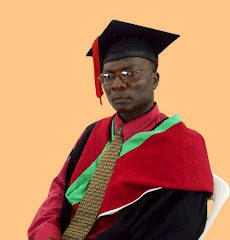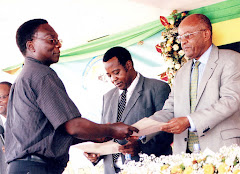TANZANIA is endowed with abundant different kinds of natural wealth which can be found within its borders from west to east and then from North to south of the country.
Due to the increase of the population, many of the resources available in the country, have been badly misused and sometimes gets damaged for improper usage for no reasons. For example, there is rampant felling of trees despite of the government ban thus causing deforestation. Sometimes people destroys their natural wealth that does not foresee the importance of water sources in an area, the destruction of water catchments, an aspect that leads to the drying up of the main water sources which ultimately affects the entire eco-systems. If the resources found in Tanzania would have been used properly, it’s obvious that the life of most Tanzanians would never be as can be seen now where in some parts of the country there is famine which is still a great problem to the nation. Famine remains a challenge every year and to be on the safe side, the nation has to seek for assistance outside the country. From this point of view, it shows that the people of Tanzania do no have an effective development plans associated with agricultural activities and it’s therefore amazing to see that the nation keeps on asking for food assistance and yet the country has an arable land that covers about 70 percent. Statistics shows that out of this vast land, only a size of 10 percent which is on use countrywide.
Other natural features that Tanzania is endowed with includes water streams and abundant natural lakes, and still on its eastern side of its frontiers, the country is bounded by the Indian Ocean. But there is less important economic activities that is taking place in all these waters as required. There are a number of natural lakes in this country which have become an attraction to tourists apart from fishing as the main economic activity done in these lakes. But despite of this, problems of improper use of natural wealth is still there. It’s really amazing to see that people who proves to be active in these areas have definitely failed to use the opportunities as well as the available resources in order to sustain economically. This is because of the fact that, there is no a collective accountability for the concerned community and on the other side lack of commitment from the government side, is a contributing factor altogether.
According to one economist, if large portion of the natural resources found in Tanzania would have been used in proper way, Tanzania would have been among the least developed nation in the world. According to him, Tanzania government seems to have failed to organize themselves properly and put down effective strategic plans and policies so that it might benefit from its natural resources including mineral deposits it has.
“For example, the government must impose policies to defend the indigenous small scale miners and let them organize themselves in various groups to form organizations and unity for their help” he said adding that, by having such organizations it’s easier for them to get credit facilities such as loans from financial institutions to enable them develop.
Apart from that, the government should create a conducive environment by way of maintaining better infrastructural facilities so as to enhance the environment of production schedules. But due to lack of all these facilities, coupled with lack of proper planning system imposed for the development of minerals in the country, this might be the main reasons for minerals to be a scarce commodity to almost every Tanzanian.
Mining activities has been creating problems to the people living close to mining sites in the country, a result of which some have lost their lives for no apparent reason bearing the fact that these are the country’s natural resources and a gift given by the lord God.
Tanzania’s national parks have become the most attractive tourist destination centers for having different animal species which can be found there. Every year, there are huge number of the visiting tourists in 15 national parks found in the country and the government has been earning a huge amount of foreign exchange.
Despite of this tremendous development taking place in the country, tourism sector is yet to help reduce poverty stricken situation in the country owing to the fact that, there is poor work supervision coupled with poor administration on our own wildlife resources.
There are many vivid examples that can prove how the government has totally failed to mobilize country’s natural resources for the local development. Despite of the vast densely populated forest lands across the country, it’s wonderful to see that the government has even failed to supply desks to many primary schools in rural areas which do not have enough desks for pupils and students in both primary and in some secondary schools.
This is an example which shows that no Tanzanian leader who is a position to explain and elaborate on how we don’t have enough desks for pupils and yet our country has vast forest lands from which to harvest trees to make wood from which to prepare desks for our pupils and students in schools. Agricultural sector seems to be lagging behind despite of the efforts aimed to give the priority to the sector. Agricultural products are not scientifically processed to their final product. The question comes that, why shouldn’t we have our own agricultural canned industries for our locally produced products to suite farmers in the country? For example, most Tanzanians are able o establish processing industries to produce products from locally procured raw materials.
By having our own local industries, the situation would reduce the mindset of most Tanzanians who thinks that most commodities are imported to the country and used as a product market produced outside the country, whereas on the other way round, the raw materials have been obtained from within the country. This situation has caused Tanzanians to use foreign exchange to order small low quality consumable products from far eastern countries such as China, Indonesia, Taiwan etc, instead of using the money to buy production equipments such as tractors and their spare parts, or industrial machineries. This is shameful on the part of the government which cannot even avert such claims as related to the whole issue of importing products from abroad as it has the power of using various techniques to stop direct importation of the products which can be produced in the country to minimize unnecessary costs. For example, there is a need for the government to stop importing Khangas and Vitenges from outside the country, and by doing this, the government shall reduce unnecessary stiff competition among the local producers who suffers at the expense of cheap imports. But it’s through making use of our own available resources that our government can make a one step forward towards national development despite of the little that we have at the moment. Today Tanzania has been turned a market place selling products produced by foreigners who takes raw materials from our country and make products which in turn are exported to us back, thus providing employment to their people while Tanzanians remains with nothing to do to sustain their livelihood. There are so many countries in the world which are developed by depending on their own resources and not on too much dependence on external aid. If they have managed to develop by making use of their own resources, Why Tanzania which has an abundant natural resources within its borders?






















